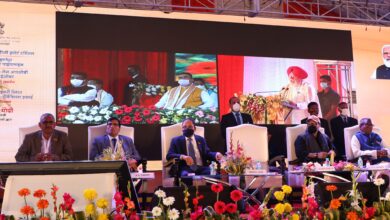UNDERSTANDING the IMPACT of AI ON General ELECTIONS

Artificial intelligence (AI) advancements along with Generative AI, have already penetrated numerous industries, including education, healthcare, and the workforce. The political parties are no exception and can significantly influence the election process.
The use of AI in politics is becoming increasingly common, with political parties utilizing retargeting strategies to customize messages that resonate with voters. Although The Ministry of Electronics and Information Technology (MEITy) has introduced initiatives to address some privacy concerns concerning AI platforms, there are currently no specific laws regulating AI in India, despite the government introducing guidelines for responsible AI development.
Concerns about the possibility of AI-generated political advertisements have sparked debates on transparency, accountability, and the need for regulatory measures to ensure the authenticity and transparency of political discourse in this new era of politics.
In light of the ongoing elections for the 18th Lok Sabha, the Indian Women Press Corps (IWPC) organized a panel discussion at their Windsor Place premises in New Delhi to explore the impact of AI technology on the elections on 23rd April 2024.
The panelists were; Archis Chowdhury Senior Correspondent Boom, Japleen Pasricha Founder-CEO Feminism in India, Kartik Sharma, AI Thought Leader, Tejasi Panjiar, Associate Policy Counsel Internet Freedom Foundation
The use of AI-generated content in election campaigns is rapidly increasing, and it’s causing some concerns. The technology is being used to create Deepfakes and AI-generated voices, which can be used for political messaging and the creation of fake images. It has become a focal point for discussions on the security of the election process.
AI has been in use for some time, but with the introduction of Generative AI, it has had a greater impact on the election process, both positively and negatively. The most significant impact of Generative AI is the way it has transformed the processing of information.
According to Archis Chowdhury, Senior Correspondent Boom, the impact of generative AI can already be seen in the current elections and it could be close to the polling dates. He said these tools can be used as disinformation campaigns by political parties. “The increasing trend of Deep Fakes can be misused for misleading information without accountability”, he said.
AI can be viewed as a double-edged sword. In some cases, it is seen as a solution to problems, while in others, it may pose a threat.
“AI and online abuse are also interconnected and journalists are at greater risk of facing abuse”, according to Japleen Pasricha Founder- CEO of Feminism in India. All forms of AI technology were “double-edged” and had negative sides including trolling. “AI Deep Fake impacts women the most”, she said, adding that there should be proper mechanisms to stop hate speech and abuse. “Social media companies should have corrective measures for such things even before these technologies are rolled out. Gender biases are a common occurrence whenever any new technology is introduced as the internet reflects the larger part of society” she added.
AI thought leader Kartik Sharma however observed that AI can be used very effectively during election time for scaling up self-image by the political parties and politicians but the problem appears in case of impersonification. “It is a brilliant tool to create a scalable version of a candidate during an election”. He also said, “In case of Deep Fake content it becomes difficult to track the source of content creators due to vague IT laws. The definition of Generative AI is not clear due to which it becomes a problem in putting accountability”.
Tejasi Panjiar, Associate Policy Counsel Internet Freedom Foundation, said that AI can have consequences on media legitimacy. She also maintained that the IT ministry’s policy on the threat of Deep Fakes is deeply flawed, “Political parties must have accountability also”.
During the time when the model code of conduct is in place, according to Archis Chowdhury, the “Election Commission can ban the use of deep fakes as the technology is new which can damage the election process”.
President of IWPC, Parul Sharma while emphasizing the importance of AI use said that we often contemplate the potential of machines to understand and respond to emotions, which can evoke both fascination and fear, but an understanding and knowledge of AI can be of great help during the elections.
-Dilip Guha




